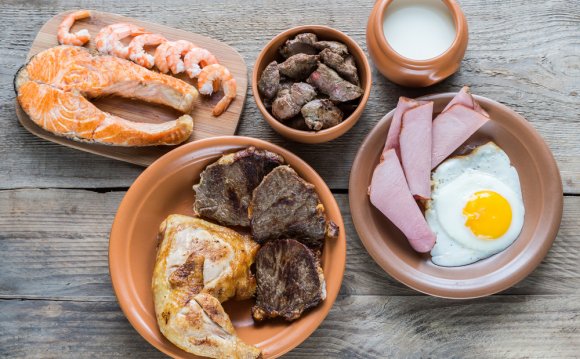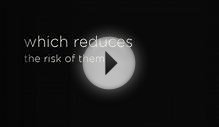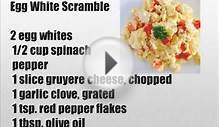
We get our energy from the food we eat in the form of calories from protein, fat and carbohydrate (also alcohol). Foods from plant and animal sources provide protein and fat. Carbohydrates, however, come exclusively from plant sources. We commonly refer to carbohydrates as starch and sugar. Any food that contains starch or sugar, whether it is natural or refined, is a source of dietary carbohydrate. For example, a glass of fruit juice is rich in fructose, a natural sugar, while a can of pop will have sucrose, a refined sugar that has been added, but in both cases the carbohydrate content is about the same. Other common carbohydrate foods include fruit, starchy vegetables like potato and rice, anything made with flour including bread, pasta and pastries, anything that contains sugar and milk which contains lactose, a naturally occurring sugar. All these foods, once they enter our digestive system, will produce a rise in blood glucose.
2. Doesn’t our body need carbohydrates?
No. This is a common myth. For instance, many people, even medical professionals, will tell you that the brain needs glucose (from carbohydrates) to function. In fact, the brain can get up to 80% of its energy needs from ketones, an energy source produced from fat in our liver. There are a few tissues that do require exclusively glucose for their energy needs like the lens of the eye, the red blood cells and a part of the kidney. The fact is that the liver is capable of producing sufficient glucose to sustain these tissues through a process called ‘gluconeogenesis’. All other tissues of the body are quite happy to burn fat or ketones for their energy needs when glucose is absent.
3. Aren’t ketones supposed to be harmful?
We all produce ketones from time to time when our supply of dietary carbohydrates dwindles. Many people will produce them in the early hours of the morning after the carbohydrates they ate for dinner are used up. People on a low-carbohydrate diet will burn ketones along with fat for most of their energy needs. We sometimes test the urine of low-carb dieters to measure ketones to determine if the diet is working. The levels of ketones in the blood in all these instances is not high enough to cause any harm. There is a condition known as ‘ketoacidosis’ which is harmful and part of the confusion around ketones may be due to this. Ketoacidosis is a serious problem that occurs in type 1 diabetics when they are not given insulin. In this case the ketone levels are many times higher and blood sugars are very high, too. While ketoacidosis is harmful, the ketosis experienced by low-carb dieters is not.
4. Will a low-carb diet increase my risk of heart disease?
This is another common myth. It is based on the notion that if you eliminate carbs as an energy source you will have to increase fat intake to compensate (there is a limit to how much protein you can eat). It was thought that an increase in fat would lead to high cholesterol which is associated with heart disease. When the studies were actually done on this, however, much to everyone’s surprise, the opposite happened. People on a low-carb diet improved their cholesterol readings even when they increased their fat intake and even when their intake of saturated fat (the so-called bad fat) increased. It appears that when you body must rely on fat for energy, the saturated fat you eat gets burned up before it can cause any harm. Another factor that plays a role in heart disease is the level of inflammation in our system. If the markers of inflammation are high we recognize this as a sign of increased risk of heart disease. We commonly order a C-reactive protein test, a marker of inflammation in the blood, to assess a person’s risk. A recent study showed that people on a low-carb diet demonstrated significantly reduced inflammatory markers.
Although there haven’t been any long term studies yet to prove it, the existing science suggests that a low-carb high-fat diet may actually reduce the risk of heart disease.
5. Will a low-carb diet harm my kidneys?
Many people mistakenly refer to low-carb diets as high-protein and we know that eating too much protein, if you have kidney damage, will worsen this problem. In fact, low-carb dieters tend to only moderately increase their protein intake and the scientific literature is clear that an increase in protein when your kidneys are healthy causes no harm. Dr. Mary Vernon, a Kansas physician who specializes in treating diabetics with a low-carb diet, has reported that patients who have very early signs of kidney damage from their diabetes can actually correct this problem with a low-carb diet, something that has not been demonstrated with any drug or other type of therapy.
The bottom line is that if you have documented kidney damage, you should not make a big dietary change without consulting your doctor. For everyone else, there is no need to worry about kidney damage from a low-carb diet.
6. Does a low-carb diet increase the risk of gall stones?
Gall stones develop when the gall bladder is inactive. Once they have developed, there is a risk that contraction of the gall bladder will cause a stone to block the gall duct. This will lead to an acute gall bladder attack which can be very painful. When gall stones are diagnosed, usually by ultrasound, surgery to remove the gall bladder is generally regarded as the best way to correct the problem. The gall bladder tends to contract in response to a fatty meal. If someone has gall stones and they eat a fatty meal this could trigger an acute gall bladder attack. On a low-carb diet, most of the calories come from fat but, initially this is the fat that the person has stored. Burning off stored fat won’t trigger a gall bladder attack. Later on in a low-carb diet, when weight loss has reached a plateau, increasing dietary fat could theoretically trigger a gall bladder attack. There have been no reports of this in the literature and my colleagues who have had years of experience in guiding people on low-carb diets tell me that the risk is no greater than if people were eating a regular diet.
INTERESTING VIDEO












